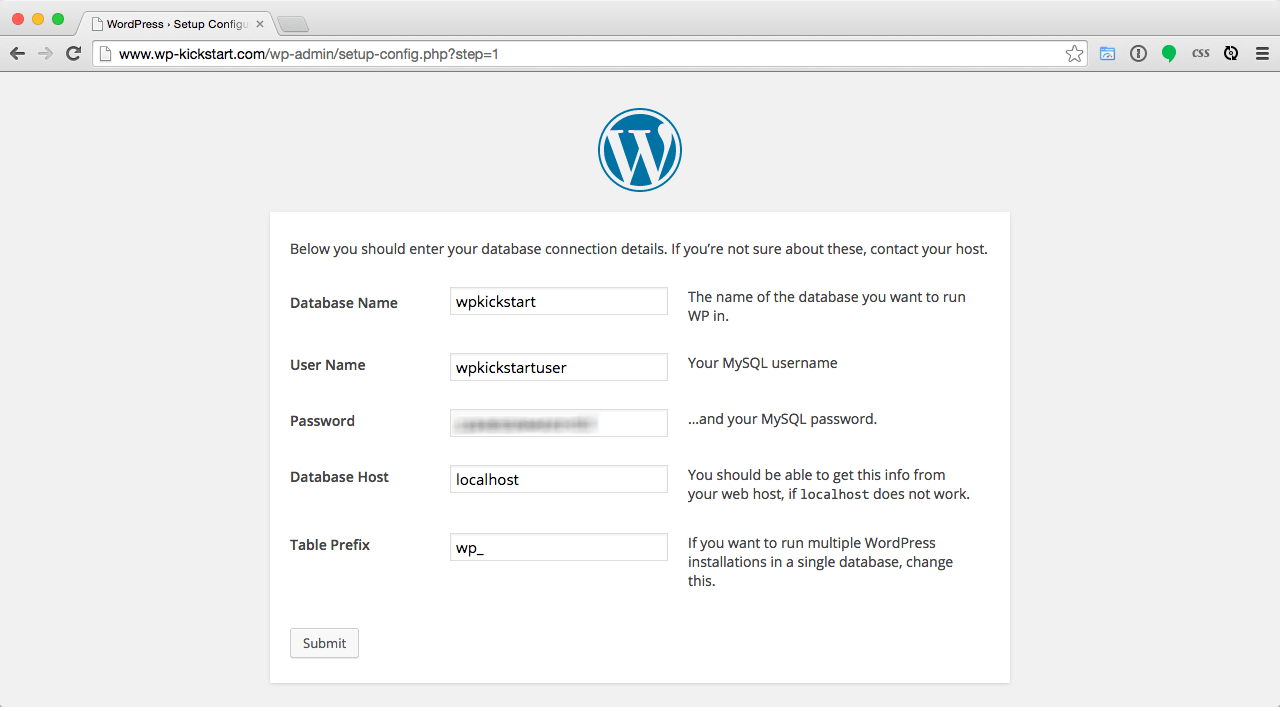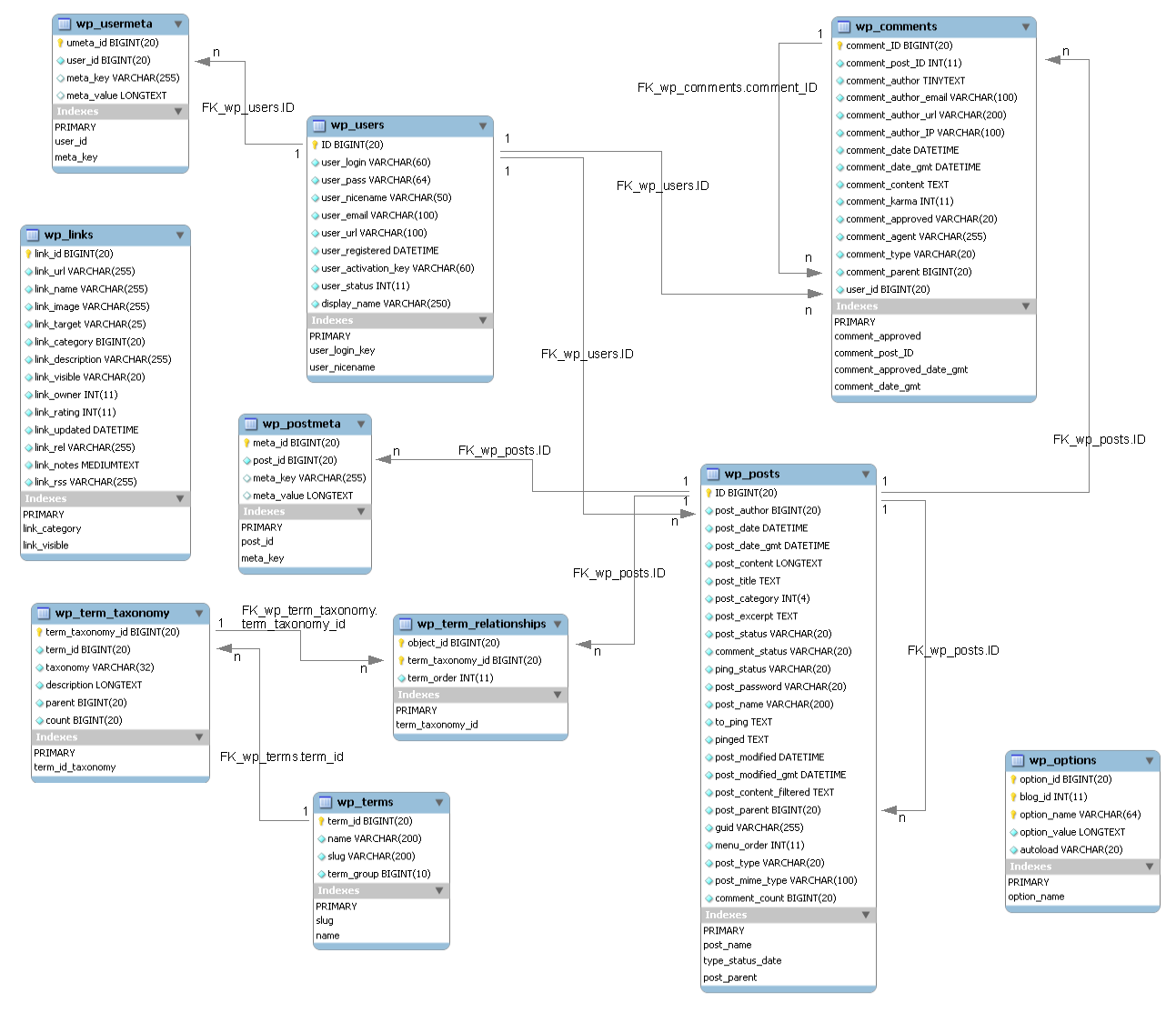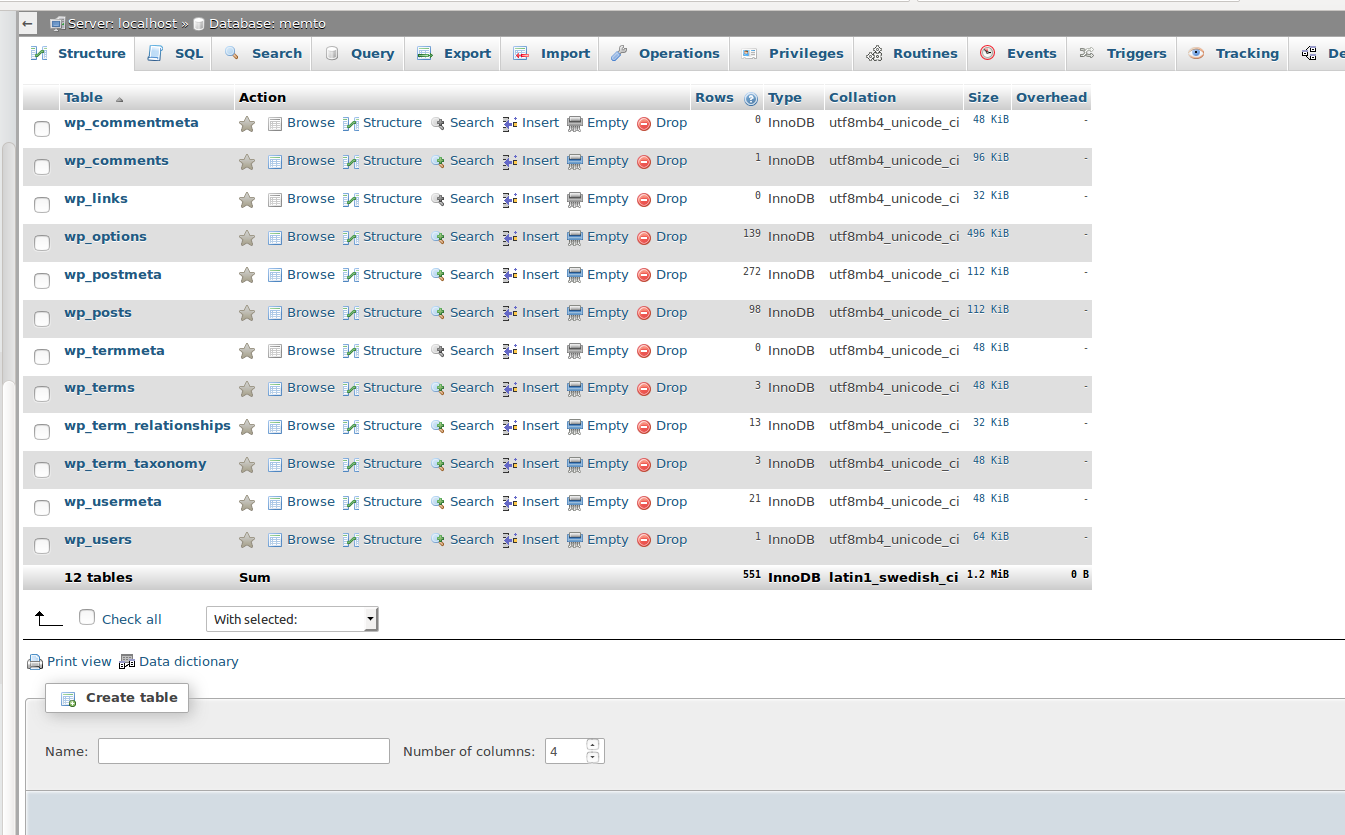When you start working in the database you have to mention your database name ,User name, Password, Database host and your table prefix the WordPress site has 12 tables in the database including the users table the user doesn't create this table this table is created automatically. Every database table contains information about your WordPress site on which you are working. Overviewing at the structure of these tables, you can without much of a stretch comprehend where diverse parts of your site are put away. At present, a default WordPress establishment makes the accompanying tables:

Note: wp_ before should be placed before table name is the database prefix you pick amid the establishment. It can be distinctive.
wp_comments : As the name recommends this table contains your WordPress remarks. It contains remark creator name, url, email, remark, and so on.
wp_commentmeta : This table contains meta data about remarks posted on a WordPress site. This table has four fields meta_id, comment_id, meta_key, and meta_value. Each meta_id is identified with a comment_id. One case of remark meta data put away is the status of remark (endorsed, pending, waste, and so forth).
wp_links : To oversee blogrolls make by prior renditions of WordPress or the Link Manager module.
wp_usermeta : Contains meta data about Users on your site.
wp_users : Contains User data like username, secret word, client email, and so forth.
wp_term_taxonomy : This table characterizes scientific categorizations for terms characterized in wp_terms table. For instance in the event that you have a term "WordPress Tutorials", then this table contains the information that says it is connected with a scientific classification classifications. In short, this table has the information that helps WordPress separate between which term is a classification, which is a tag, and so on.
wp_terms : WordPress has a capable scientific classification framework that permits you to sort out your substance. Singular scientific categorization things are called terms and they were put away in this table. Illustration, your WordPress classifications, and labels are scientific categorizations, and every class and tag inside them is a term.
wp_term_relationships : This table oversees relationship of WordPress post sorts with terms in wp_terms table. For instance, this is the table that helps WordPress decide post X is in Y class.
wp_postmeta : This table contains meta data about your WordPress posts, pages, and custom post sorts. The case of post meta data would be which format to use to show a page, custom fields, and so on. Some modules would likewise utilize this table to store module information, for example, WordPress SEO data.
wp_posts : The name says posts in any case this table contains all post sorts or if we say content sorts. This table contains all your posts, pages, corrections, and custom post sorts.
wp_options : This table contains your WordPress site wide settings, for example, the url of ypur site, admin's email, default class, posts per page of the website, time organization, and much considerably more. The choices table is likewise utilized by various WordPress modules to store module settings.


0 Comment(s)